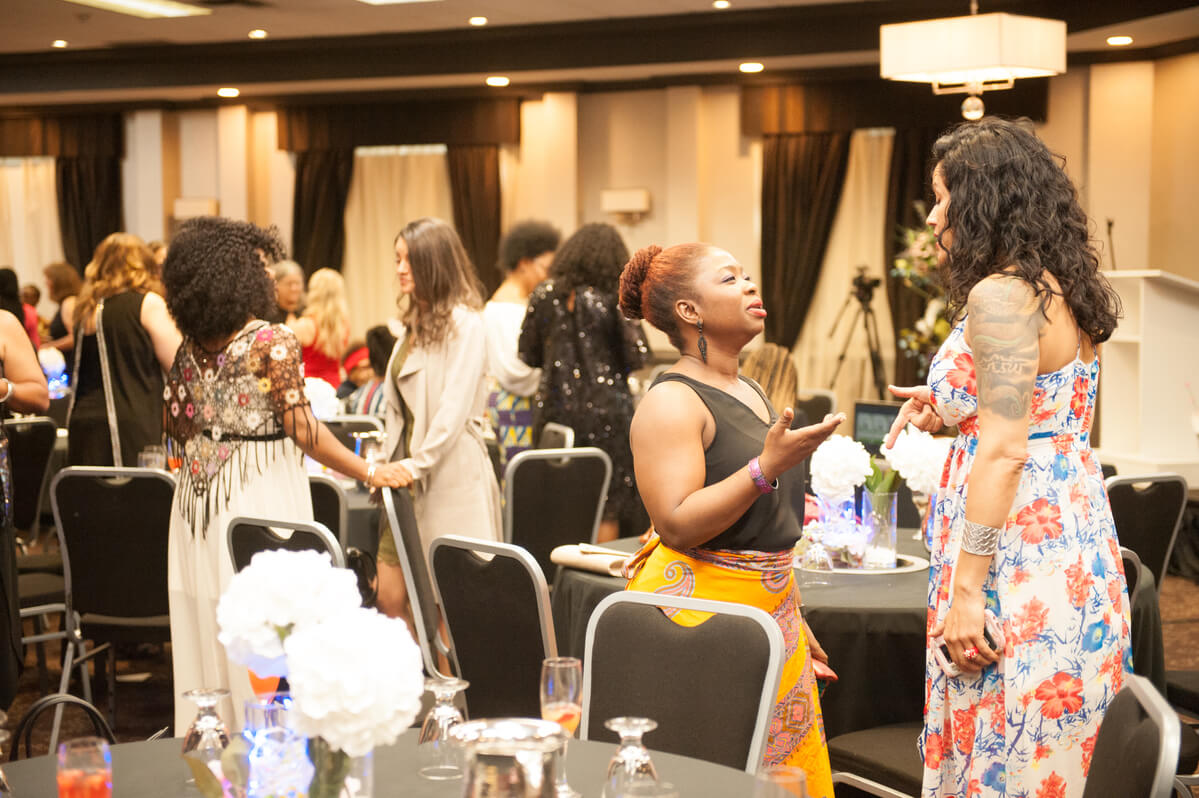How do you grow the economy? By having more women in business.
In fact, research suggests that working towards gender equity in entrepreneurship could add $150 to $420 billion to Canada’s GDP by 2026. A 10 per cent increase in the number of women-owned small and medium enterprises would boost the GDP by $198 billion according to RBC.
At Co-operatives First we support women entrepreneurs, especially in Indigenous and rural communities where women tend to be under-resourced. In 2020, 50 per cent of the groups we supported (with things like business planning, incorporation, board training) were either all or majority female founders. But there’s more work to do.
More women entrepreneurs just makes sense
Supporting women in entrepreneurship is good for the country’s bottom line. According to Women’s Entrepreneurship Saskatchewan (WESK), “Investing in women entrepreneurs is not just the right thing to do, it is the smart thing to do.” In a recent report, WESK noted that women entrepreneurs contributed $23.1 billion to the economy and created 191,836 jobs — and that’s just in Saskatchewan.
But women still encounter barriers to becoming successful entrepreneurs. They are less likely to seek and receive financing. They experience bias throughout their careers. In the absence of sufficient childcare options, women are more often the partner who stays home with children and/or picks up the slack. The pandemic has exacerbated hardships for women who run businesses — theirs tend to be smaller, less capitalized, and in the service sectors hit hardest.
It’s no wonder fewer women are entrepreneurs.
But women do start businesses — and we’ve worked with some great ones. Let’s take a look at some amazing groups of women who have decided the co-op model is the best way to meet their business goals.
Female founders embracing co-operatives
Blooming Ladies is a co-op by women, for women, who found that freelancing or being self-employed could be lonely. The co-op’s founders wanted to create a network for women to build connections, find opportunities, and learn from each other.
Why did they choose a co-op for their business structure? Co-founder Wunmi Akinlotsu summed it up with the proverb “if you want to go fast, go alone. If you want to go far, go together”. Blooming Ladies is playing the long game to provide a space for women to thrive.
We’ve seen other co-ops founded by professional women emerge. The members of Co+host Consulting — a co-op on Haida Gwaii — use their diverse skill sets to provide clients with unique facilitation services. Change Collective, a Saskatchewan co-op made of (almost) entirely of women professionals, provides coaching, facilitation, strategic planning, leadership training, and more.
When women work together, they get things done.
It starts with responding to a need
At the core of any co-op is the commitment to working together to serve a common purpose. Visionary co-founder of the Food Forest and Learning Centre Co-operative, Maggie Bluewaters, said the co-op was created out of a common desire to create food security and a safe place for learning and growth.
The Food Forest and Learning Centre consists of a 50-acre parcel of land beside Manitou Lake and a decommissioned church in Viscount, SK. The learning centre hosts homeschool classes, gardening workshops, events and provides temporary living for families in distress. The co-operative itself is an ongoing work of reconciliation, Bluewaters said.
Women-founded Squamish Fresh is another co-operative formed out of a desire for food security. The founders wanted affordable, quality produce for themselves and their families, and decided to source and distribute fruits and veggies using a co-operative. The founders of Squamish Fresh see the power in their community to create a healthier, more affordable and connected world.
The At Risk Together co-operative was born out of the Covid-19 pandemic but will continue to improve lives even after it ends. Founded by a group of mothers whose children are immunocompromised, the co-op’s goal is to provide education for kids in Saskatoon who need to attend a school with strict safety protocols to keep them healthy. These parents had a problem to address, saw an opportunity, and used a co-op to create a solution for themselves and others like them.
Finding sources of untapped value
Supporting women’s entrepreneurship isn’t just a nice idea, it’s a smart one. These co-op founders are doing more than responding to problems, they are creating thriving businesses, sharing creativity, generating economic activity and creating jobs. At the heart of it, female founders are finding deep reserves of untapped value in identifying and seizing opportunities.
As with all co-ops, the business they create is about the service it provides. Profit is important, but the service comes first. Blooming Ladies craved meaningful connection for growth-minded women, the Food Forest saw a need for healing and stewarding the land, and Squamish Fresh saw healthy food as the first step in an abundant life in their community. The business these women started is a logical extension and of what they want and find important. They are using something as dull as a legal structure to create value both for themselves, and for all of us.





